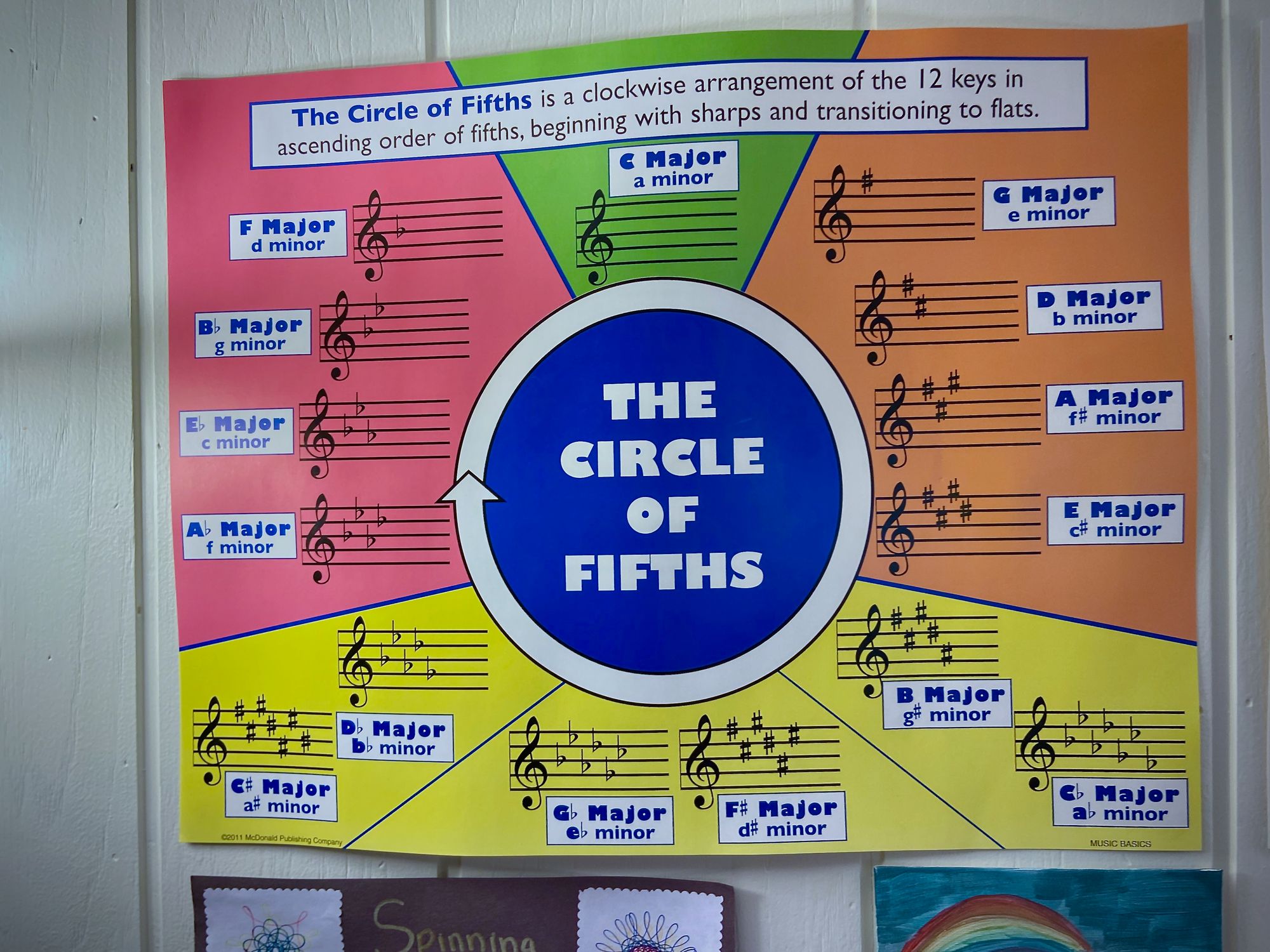Are you a hobby musician? Have you just started learning an instrument? Is your teacher suggesting you learn theory? Are you hearing other musicians talk about it but don’t understand what they are saying? Do you give private lessons on your instrument but don’t have a music degree? Do you want a career in music? As a music educator, my answer to any type of musician is YES. It is always a good idea to learn theory.
Why should you learn music theory?
- You understand how music tends to work.
- You can communicate with other musicians.
- You can play more music that you love more fluently.
- You can compose notation other musicians can read.
- You can understand which rules to keep and which rules to break in your music.
- You can create better improvisations.
- You can sight read music.
What’s Basic Music Theory?
Theory encompasses everything from basic to complex. All musicians should seek to learn music fundamentals. Here’s an infographic of some basic topics to explore:

Intermediate and Advanced Music Theory
If you are interested in diving deeper or want to study music on a collegiate level, then it is critical to learn as much as you can. This is also true if you want to teach private lessons but don’t have a college degree in music. The following list describes just SOME of what can be learned:
More Chord Types (a few examples)
Seventh Chords
Borrowed Chords
Secondary Dominants
Augmented Sixth Chords
Neapolitan Chords
Common Chord Progressions
I IV V I
I ii V I
I vi IV ii V I
These chord progressions are written using Roman Numeral Analysis which you will also want to learn.
Part Writing and Analysis
Resolutions of chord tones
Roman numeral analysis of chords and identification of non chord tones
Analysis of common forms such as chorales, verse/refrain, ABA, ABACA, Sonata, Fugue, etc.
Scales Beyond Major and Minor
Modes such as dorian and mixolydian
Blues
Pentatonic
Whole Tone
Ear Training
Rhythmic
Melodic
Harmonic
Don't Forget These!
Transposition
Modulations
Circle of 5ths
Polyrhythms
Meter of all types

If you’re interested in more check out 12 tone music and create a 12 tone matrix. Study and analyze a composition using hexachordal combinatoriality. These will stretch you beyond the music you usually hear and play.

The Best Way to Learn Music Theory
The ideas below are practical and point you in the right direction. The best thing is to start small. As you begin learning, you’ll become skilled at basic concepts and be ready to add more.
- Study the music you play to make sure you understand all the elements that make it up. Having a teacher or more experienced musician to ask questions will help a great deal.
- If you take private lessons, ask your teacher to introduce more theory.
- Get a theory book or visit an online music theory site such as musictheory.net to practice and learn skills. Don’t forget the ear training exercises.
- Try to play a song you know well by ear. See if you can reproduce the melody and rhythm. If you play piano or guitar, try to figure out the chords as well.
Final Thoughts
Any theory you learn will be beneficial. While not every type of musician needs advanced theory to be good at music, be willing to expand beyond what you know. There is always more to learn.



